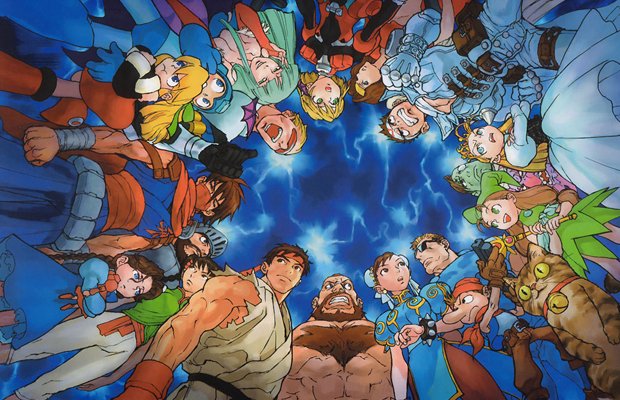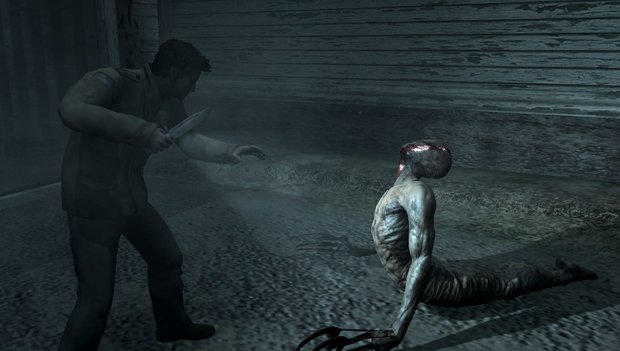Capcom seriously cranks up game output. Good idea, or Activision-style nightmare?
Will quantity decrease quality for the big C?
Capcom's current plan is to double its yearly number of big franchise entries, and in order to bring down developmenttimes it's going to outsource more work to external western developers. I'm excited and hesitant about thatin equal measure, and if you'llread on, I'll break downthe full list of pros and cons causing that ambivalence.
The pros
- More big Capcom games. This one is obvious. Capcom has some of the strongest and best brands in the history of gaming, and has been one of the most consistent Japanese developers over the last twenty-five years. Street Fighter, Mega Man, Devil May Cry, Resident Evil, Bionic Commando, Darkstalkers, Marvel vs. Capcom, Ghouls 'n' Ghosts, Phoenix Wright, Final Fight, Okami, Viewtiful Joe... All of those titles immediately evoke thoughts of very good times indeed. And every time one of them isattached to a new game, it's a reason to get excited.

Above: Admit it. You love each and every one of them
- Capcom could do with new blood. With the loss of several of the staff responsible for Capcom's most celebrated work to indie super-group Platinum Games (the men responsible for Resident Evil 1 - 4, Devil May Cry, Okami, God Hand, Viewtiful Joe, Killer7 and Phoenix Wright are all over there now), Capcom would really benefit from an influx of talented, forward-thinkingnew developers to keep its keystone franchises fresh and exciting. Let's not forget how Resident Evil 5 was very much a retread of Resi 4 without Shinji Mikami's guiding hand. Ditto Devil May Cry 4's lack of progressionfollowing Director Hideki Kamiya's departure to make thesimilar but massively advancedBayonetta at Platinum.
New devs with new ideas, and a mission to evolve Capcom's properties could be an exciting thing indeed. Let's face it, Nintendo and Rare worked out pretty well. - More franchise entries could mean more experimentation. Let's face it, however good a game is, if it's going to become a worthwhile lasting brand, it needs to evolve andcomeat its core material from new angles with each sequel. Capcom has shown the bravery to completely turn franchises on their head before when freshening up has been needed. There wasa little series called Resident Evil that was getting a bit stale until Capcom totally shook it up and inadvertently changed action games forever. Devil May Cry too, originally came from an idea for a Resi spin-off.
With more franchise entries comes an ever-increasing need for innovation, and if Capcom can apply that pioneering spirit to its franchises with new talent from outside the company, it could have a very exciting opportunity here.
The cons
- Franchise-whoring. We see this sort ofapproach from western publishers all the time, and all too often, it results in a whole lot of crap and the cheapening of once-great series. We already get a Call of Duty every year, and now Activision has set up a new studio to make even more. Guitar Hero used to be great, but now there are more versions of it than there are songs in the world. A concentration on big franchises means safer bets on store shelves, but taken too far it can absolutely crush creativity, along with the spirits of gamers.

Above: Homecoming wasn't bad, but it was no Silent Hill 2
- Capcom could become diluted. While I'm all for cross-pollination of ideas and healthy collaborations between different groups of talent, I'm also a great believer that Japanese game design can still be the coolest in the world. And if you read Radar regularly, you'll know thatI'm a bit uneasywith Japan's current obsession with westernising its output in order to chase sales. The eastern voice is an important one, and I don't want it to get lost through design homogenisation and throwaway farmed-out sequels. Capcom needs to be careful about how closely it runs external studio work. Silent Hill. Heed its tragic example.
- Capcom's east-west co-productions so far have not been great. Okay, so there have only been a couple, but we do not need a Capcom with an increasedquota of games like Bionic Commando and Dark Void. Neither game was awful (in fact I really quite enjoyed DV in a guilty b-movie kind of way), but neither was up to the standard of spectacle or polish that's always been synonymous with the big C. Again, Capcom is going to have to be very careful with the studios it chooses to work with.
But what do you think, fellow Capcom fans? Is the idea of more big franchise games from Capcom just downright exciting? Or are you a little hestitant to celebrate until you see how they're going to be handled? Let me know in the comments, or via our social portals onFacebookandTwitter.
Weekly digests, tales from the communities you love, and more



